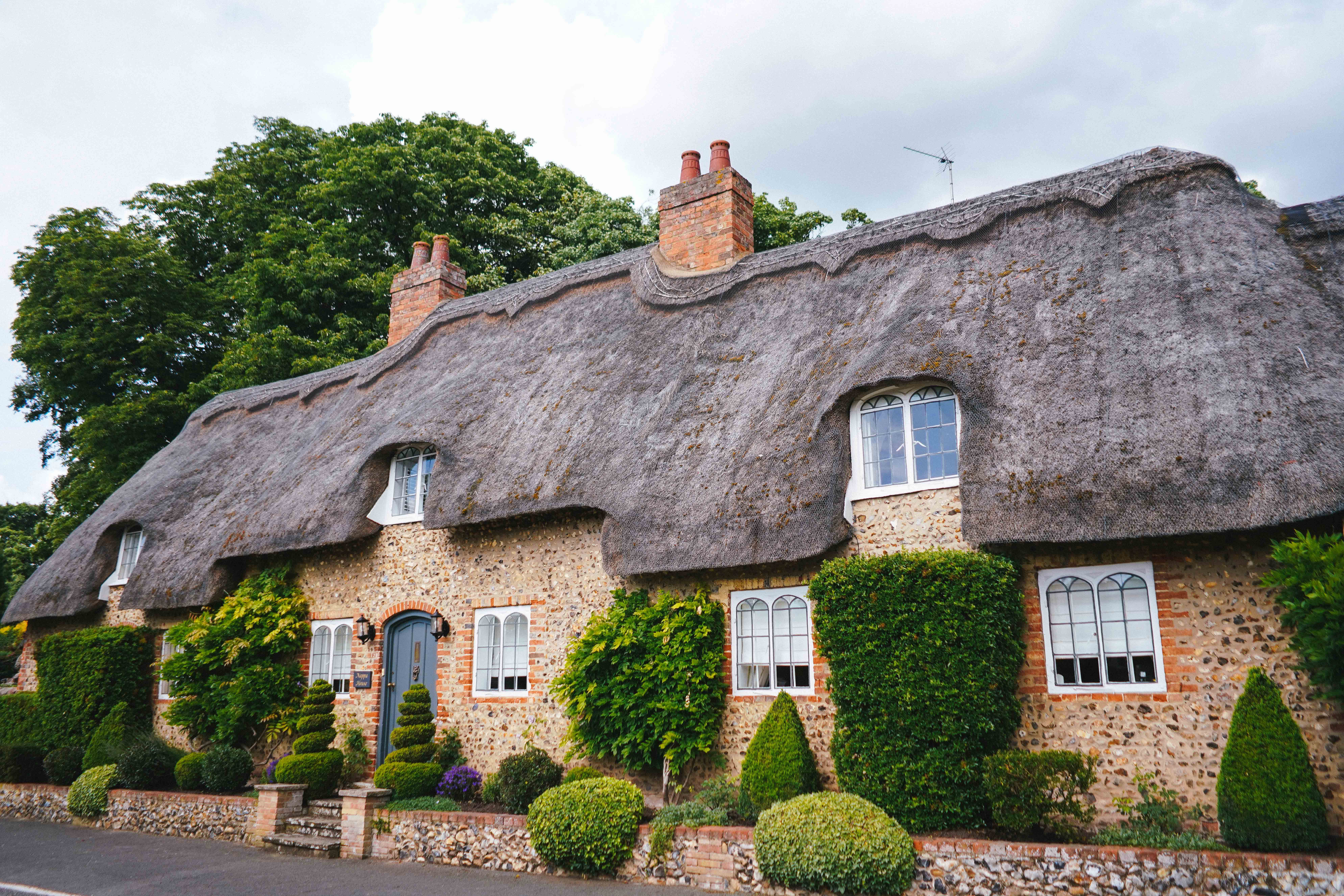Unclaimed estates: How much are you owed in inheritance?
With thousands of people dying without a will every year, it is clear that many of us fail to adequately prepare for our death. Not only are wills designed to protect our assets, they are also there to provide people with the opportunity to determine who will inherit their possessions – providing them with peace of mind that their parting wishes will be upheld.
Failing to create a will results in the rules of intestacy coming into play. This means any assets left behind are distributed according to a legal default involving your closest family members. In circumstances where family members cannot be traced the Crown Estate will inherit your assets. These assets could include any kind of property such as a house, money and other personal possessions.
Assets that are with the Crown can still be claimed back, but, relatives of the deceased only have a 12-year period in which they can make a claim to inherit the possessions.
To shine a light on the unclaimed estates that currently exist in the UK and to encourage those who may be entitled to inheritance to come forwards, the wills and probate solicitors here at Richard Nelson LLP have taken a deep dive into more than 6,000 unclaimed estates in the UK.
From this, they’ve been able to unearth the places and surnames with the highest number of unclaimed possessions. So if you’re wanting to find out if you’re in line for a small fortune take a read of our findings.
Locations with the highest value of unclaimed estates
Starting with counties, Yorkshire ranks first for having the most unclaimed estates with as many as 444 in total. With the average estate in the UK being worth £150,000, there’s a staggering £66.6 million worth of unclaimed estates ready to be claimed in God’s Own Country.
In second place is Surrey and with 343 unclaimed estates, people living here could earn up to £51.45 million in inheritance.
Rounding up the top three is Sussex where there’s a total value of £39.15 million which could be owed to eligible residents.
Across the UK as a whole, there is more than £1 billion worth of assets which are entitled to be claimed.
Top 25 counties for unclaimed estates
| Rank | County | Number of unclaimed estates | Total value of estates |
| 1 | Yorkshire | 444 | 66,600,000 |
| 2 | Surrey | 343 | 51,4500,00 |
| 3 | Sussex | 261 | 39,150,000 |
| 4 | Kent | 247 | 37,050,000 |
| 5 | Essex | 223 | 33,450,000 |
| 6 | Hampshire | 169 | 25,350,000 |
| 7 | Hertfordshire | 146 | 21,900,000 |
| 8 | Devon | 107 | 16,050,000 |
| 9 | Nottinghamshire | 97 | 14,550,000 |
| 10 | Dorset | 88 | 13,200,000 |
| 11 | Leicestershire | 84 | 12,600,000 |
| 12≈ | Somerset | 79 | 11,850,000 |
| 12≈ | Cheshire | 79 | 11,850,000 |
| 14 | Berkshire | 75 | 11,250,000 |
| 15 | Lincolnshire | 69 | 10,350,000 |
| 16 | Staffordshire | 65 | 9,750,000 |
| 17 | Gloucestershire | 64 | 9,600,000 |
| 18 | Bedfordshire | 62 | 9,300,000 |
| 19 | Norfolk | 59 | 8,850,000 |
| 20 | Derbyshire | 57 | 8,550,000 |
| 21≈ | Oxfordshire | 51 | 7,650,000 |
| 21≈ | Wiltshire | 51 | 7,650,000 |
| 23 | Suffolk | 50 | 7,500,000 |
| 24≈ | Cambridgeshire | 48 | 7,200,000 |
| 24≈ | Northamptonshire | 48 | 7,200,000 |
The data also revealed some interesting results for the top cities to make a claim in when it comes to chasing down any inheritance. If you live in the capital, then you could be entitled to a slice of £152.7 million. That’s because London is home to the most unclaimed estates at 1,018.
In second place is Birmingham which has 185 unclaimed estates amounting to a total value of £27.75 million. Leeds ranks in third.
Top 25 cities for unclaimed estates
| Rank | City | Number of unclaimed estates | Total value of estates |
| 1 | London | 1,018 | 152,700,000 |
| 2 | Birmingham | 185 | 27,750,000 |
| 3 | Leeds | 130 | 19,500,000 |
| 4 | Bristol | 86 | 12,900,000 |
| 5 | Bradford | 76 | 11,400,000 |
| 6 | Nottingham | 73 | 10,950,000 |
| 7 | Leicester | 67 | 10,050.000 |
| 8 | Sheffield | 63 | 9,450,000 |
| 9 | Southampton | 62 | 9,300,000 |
| 10 | Coventry | 51 | 7,650,000 |
| 11 | Brighton | 50 | 7,500,000 |
| 12 | Cardiff | 46 | 6,900,000 |
| 13 | Derby | 43 | 6,450,000 |
| 14 | Portsmouth | 41 | 6,150,000 |
| 15 | Wolverhampton | 39 | 5,850,000 |
| 16 | Durham | 37 | 5,550,000 |
| 17 | Newcastle | 33 | 4,950,000 |
| 20 | Oxford | 28 | 4,200,000 |
| 21 | Gloucester | 26 | 3,900,000 |
| 22 | Norwich | 23 | 3,450,000 |
| 23 | Sunderland | 23 | 3,450,000 |
| 24 | Worcester | 21 | 3,150,000 |
| 25 | Bath | 21 | 3,150,000 |
Surnames with the most unclaimed estates
Although it’s important to note that the deceased and their relatives may not always share the same surname, according to the data, people with the last name ‘Smith’ rank first with a grand total of 122 unclaimed estates. As a result, those with the surname Smith could be owed a huge sum of £18.3 million in inheritance.
If your surname is ‘Jones’, then you may be entitled to £11.7 million, coming in second highest with 78 unclaimed estates.
Finally, in third place is ‘Taylor’ – having 51 unclaimed estates and an eye-watering £7.65 million attached to their name.
But – who is entitled to an unclaimed estate?
While all relatives can make a claim for an estate there is a specific order of entitlement that the Crown will follow. The order is as follows:
- Husband, wife or civil partner
- Children, grandchildren, great-grandchildren and so on
- Mother or father
- Brothers or sisters who share both the same mother and father, or their children
- Half brothers or sisters or their children
- Grandparents
- Uncles and aunts or their children
- Half uncles and aunts or their children
How do you make a claim for an unclaimed estate?
If you are a relative, here is how to make a claim:
- Check if the estate is listed with the Crown
- Make sure you’re an entitled relative
- Make a claim on the estate
If an estate is not listed then you can tell the Crown about an estate you think is unclaimed.
If you’re not a relative but think you may be entitled then you can also make a claim from the estate.
For making any type of claim, you will need to be organised and have your official documentation ready well in advance as evidence. This includes – but is not limited to – your family tree, two documents of ID, as well as any marriage, birth and death certificates.
How to make a will
By making a will you can help to protect your loved ones after you die and ensure your possessions are distributed as you’d wished – rather than becoming an unclaimed estate.
With this in mind, Rebecca Head, consultant solicitor in the wills & probate team here at Richard Nelson LLP, has shared her top tips for making a will:
1) Identify what your estate consists of
The first thing to tackle when drawing up a will is to create a list of all of your assets and debts to understand how much your estate is worth.
This will include your owned property, savings and investments, physical possessions, bonds, shares, royalties, insurance funds, pension funds, and liabilities.
Working out everything you own and owe is necessary to be able to estimate the value of your estate and find out whether it is below the Inheritance Tax threshold of £325,000.
2) Select an executor
Choosing the right executor is important when writing a will as this individual will be responsible for dealing with your estate after you have passed away and it can be a demanding task.
The person you name should be someone you trust, for most people it’s usually a family member or close friend. Ensure you ask the desired person first so they are aware of the responsibility they’ll have.
It is also important to name a replacement executor in case your main executor is unable to carry out your wishes. This could be because they themselves have passed – which is not uncommon – or if they simply do not want the job.
3) Name the beneficiaries in your will
The beneficiaries in your will are the people or person who will receive some or all of your estate when you die.
Here you need to be clear about how you are dividing your estate and who you want to benefit. If you do have specific wishes for a certain asset, then you should make this clear.
This will help to prevent any confusion and hopefully reduce the risk of arguments when your assets are being divided.
4) Take advice from a professional
Hiring a good solicitor to draw up your will is well worth the money to ensure there are no mistakes and it is written correctly. While it may seem like an unwanted cost it will help to avoid any extra payments your family may have to cover such as from an inheritance tax bill.
Using a solicitor is particularly important if your finances are complicated. Such scenarios could include if you are worried about having to pay for care in the future or if you want to leave a close family member out of the provisions of your will.
Methodology
We analysed data from GOV.UK which outlines all of the unclaimed estates held by the Treasury Solicitor. Off the back of this we were able to calculate the locations and surnames who had the most unclaimed estates.
With the average estate in the UK being worth £150,000, we used this to work out the total value of estates in each location & for each surname.
Next steps
If you’re looking for support creating your will or potentially even claiming an estate, our wills and probate solicitors can help. Get in touch today!

